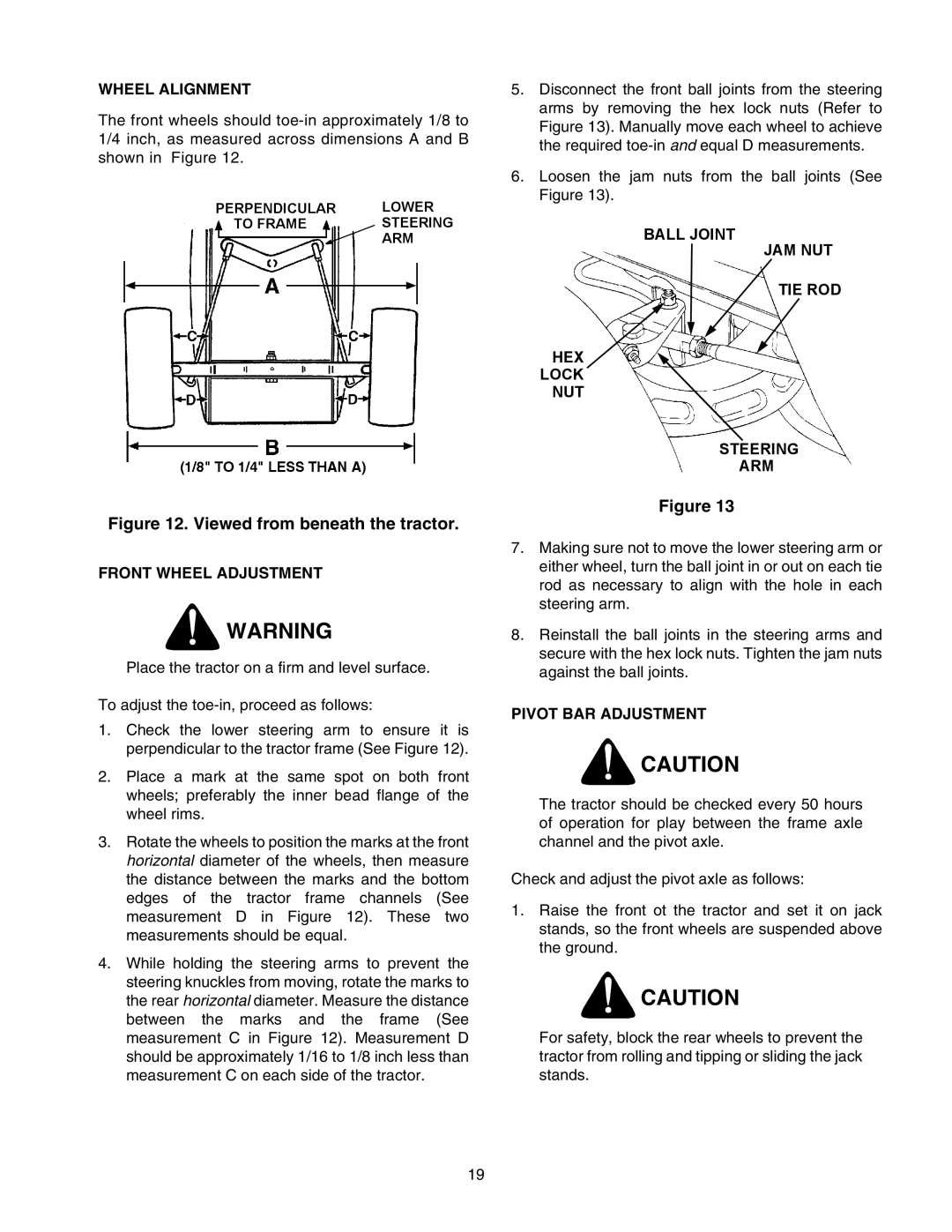
WHEEL ALIGNMENT
The front wheels should
PERPENDICULAR | LOWER |
TO FRAME | STEERING |
| ARM |
Figure 12. Viewed from beneath the tractor.
FRONT WHEEL ADJUSTMENT
![]() WARNING
WARNING
Place the tractor on a firm and level surface.
To adjust the
1.Check the lower steering arm to ensure it is perpendicular to the tractor frame (See Figure 12).
2.Place a mark at the same spot on both front wheels; preferably the inner bead flange of the wheel rims.
3.Rotate the wheels to position the marks at the front horizontal diameter of the wheels, then measure the distance between the marks and the bottom edges of the tractor frame channels (See measurement D in Figure 12). These two measurements should be equal.
4.While holding the steering arms to prevent the steering knuckles from moving, rotate the marks to the rear horizontal diameter. Measure the distance between the marks and the frame (See measurement C in Figure 12). Measurement D should be approximately 1/16 to 1/8 inch less than measurement C on each side of the tractor.
5.Disconnect the front ball joints from the steering arms by removing the hex lock nuts (Refer to Figure 13). Manually move each wheel to achieve the required
6.Loosen the jam nuts from the ball joints (See Figure 13).
BALL JOINT
JAM NUT
TIE ROD
HEX
LOCK
NUT
STEERING
ARM
Figure 13
7.Making sure not to move the lower steering arm or either wheel, turn the ball joint in or out on each tie rod as necessary to align with the hole in each steering arm.
8.Reinstall the ball joints in the steering arms and secure with the hex lock nuts. Tighten the jam nuts against the ball joints.
PIVOT BAR ADJUSTMENT
![]() CAUTION
CAUTION
The tractor should be checked every 50 hours of operation for play between the frame axle channel and the pivot axle.
Check and adjust the pivot axle as follows:
1.Raise the front ot the tractor and set it on jack stands, so the front wheels are suspended above the ground.
![]() CAUTION
CAUTION
For safety, block the rear wheels to prevent the tractor from rolling and tipping or sliding the jack stands.
19
